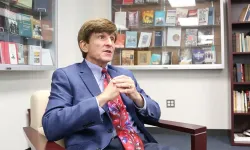Background and Charges
The case centers around allegations that Trump retained classified documents at his Mar-a-Lago estate after his presidency ended. The FBI's raid on the property in August 2022 resulted in the recovery of over 300 documents. Trump was subsequently charged with 40 federal counts, including obstruction of justice.
Judge Cannon's Rationale
Judge Aileen Cannon's dismissal of the case pivots on her finding that Special Counsel Jack Smith's appointment was invalid. Cannon ruled that Attorney General Merrick Garland did not have the authority to appoint a special counsel without Senate confirmation, thereby nullifying Smith's role and the charges he brought against Trump.
- Unconstitutional Appointment: Cannon's decision focused on the argument that Smith's appointment violated constitutional norms because it bypassed the Senate's confirmation process. This legal interpretation has profound ramifications, questioning the legitimacy of the entire investigation.
Key Moments and Legal Arguments
-
Conflicting Testimonies: During the trial, testimonies from various witnesses provided conflicting accounts of the events and safety protocols at Mar-a-Lago. These discrepancies weakened the prosecution's narrative.
-
Expert Opinions: Expert witnesses offered divergent views on whether Trump could be held personally accountable for the mishandling of the documents. The defense argued that Trump had been informed that the documents were declassified, creating further ambiguity.
-
Procedural Missteps: The prosecution faced scrutiny for several procedural errors, including late evidence submissions and inconsistencies in witness handling. These missteps undermined the prosecution's case and bolstered the defense's argument.
-
Political and Public Pressure: The high-profile nature of the case attracted intense media attention and public scrutiny. The defense argued that the charges were politically motivated, a claim that resonated with a significant portion of the public.
Implications of the Dismissal
The dismissal of the case represents a major victory for Trump and raises questions about the future of similar legal actions. The decision casts doubt on the DOJ's ability to pursue high-profile cases involving political figures without facing challenges to procedural legitimacy.
-
Future Legal Strategies: Legal experts suggest that the DOJ might consider refiling the charges through U.S. Attorneys in a different jurisdiction to avoid the issues raised by Cannon's ruling. This approach could offer a new avenue to hold Trump accountable without the complications of the special counsel's appointment.
-
Impact on Special Counsel Role: Cannon's ruling has sparked debate over the use of special counsels in politically sensitive cases. The decision could lead to calls for reform in how special counsels are appointed and their roles in investigations.
Conclusion
The dismissal of the classified documents case against Trump marks a significant moment in his legal battles and highlights critical issues within the justice system. As the DOJ contemplates its next steps, the ruling underscores the complexities and challenges of prosecuting high-profile political figures.
For ongoing updates and detailed analyses on this unfolding story, you can follow the original article on The Guardian.















